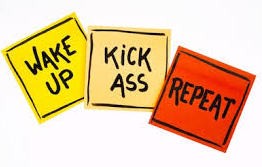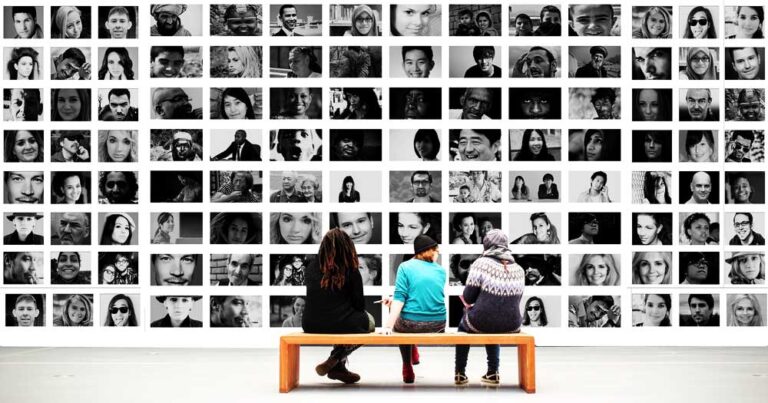
Today, we live in a society where many people are predominantly problem-oriented rather than solution-oriented. I know this to be true because a lot of individuals spend a significant amount of time overthinking their problems instead of taking action to address them. If they did take action, our world would likely be vastly different from what it is today.
Practically speaking, problem-oriented individuals waste a lot of time (let’s say up to 80%) pondering questions such as:
– Why did it happen?
– Why did it happen to me?
– Why do bad things keep happening to me?
– How will it affect my life?
– What could I have done differently to prevent it?
– Why did it happen to me?
– How will it affect my life?
– Why do bad things keep happening to me?
Actually, they replay the problem in their head in a loop, repeating it again and again to a degree that one statistic states that 80% of all our thoughts are negative and 95% repetitive.
They still ask themselves, “What can I do about it practically speaking?” but this contemplation isn’t always immediate and given enough weight as to the above questions, which is why many people waste a lot of time lingering in negativity, barely taking enough action to resolve their problems. As a result, their lives aren’t moving forward as fast as they would ideally like.
– I want everything to be given to me on a gold plate.
– I want people to know what I want and give it to me, even if I don’t know what it is myself.
– I’m waiting for my problems to suddenly disappear by themselves.
Naturally, this is unrealistic, as eventually most people realize that if we want something from life, it is a much better tactic to just go and get it ourselves.
Instead, a solution-oriented approach to problem-solving spends the majority of its time and energy (approximately 80%) on the question:
– What can I do about it, practically speaking?
This question should result in a to-do list of things you need to achieve, things that a person will try to accomplish as soon as possible to overcome a problem at hand.
Rarely does a solution-oriented person contemplate:
– How will this affect my life?
– Why did this happen to me?
– What can I do differently in the future to prevent a similar situation from occurring?
However, this contemplation is still possible, but it is done in much lower quantity, and only to a degree that is relevant to the ultimate solution, rather than lingering contemplation over a problem.
On the Nature of Problems
Here it helps to remember that our problems resemble a to-do list of desires. In this way, if we want or don’t want something, it becomes part of our to-do list. And since we are living in the age of abundance, we are constantly incentivized to consume more and live an even better life, making our to-do list truly infinite.
For example, having one car may lead to a desire for a better car, and perhaps more cars in the future. And this item (the car) is just for one, among numerous other things we may potentially desire to have or do.
Similarly, if my business is generating $1 million per year, I may set goals to earn $10 million, then $100 million, and eventually $1 billion per year. In other words, I don’t just achieve a certain goal. Instead, once we reach a certain milestone such as $1 million, we replace it with a new goal, for example, $10 million, indicating that we are constantly in a rat race.
We constantly encounter problems and remain dissatisfied with our lives, regardless of how much or little we do, and how good or bad our lives actually are. This is also a reason why many wealthy people are still unhappy and why becoming rich is not the solution for happiness.
Instead, the solution to happiness is to realize that we have a to-do list and we will always have one. Respectfully, we should approach this to-do list by trying to be productive and solution-oriented rather than reactive and crying over the fact that we have a to-do list.
So keep doing what you need to do and remember that you will always have a to-do list as long as you have a list of desires in your life.
Here, I want to offer you a happiness trick, which is to reduce the number of your desires. This may sound counterintuitive, but it can help you realize that more often than not, you already have enough and are ready to be happy.
For more tips and tricks on happiness, please continue reading this blog, buy our Optimal Happiness book, or subscribe to our Happiness Coaching.
Stay happy!















12 thoughts on “Problem vs Solution-Oriented Approach to Problem-Solving”
Great post Roman👍
Very motivational writeup, thanks for sharing.
Thank you for your support!
Great article!
I appreciate your positive comment!
Awesome! We’re all about finding new ways to spread happiness, so more people can experience the beauty, love, and peace that life has to offer. Together, we can make the world a better place.
Interestingly, I’d say that instead of trying new ways to be happy, we should aim at finding THE way, the one solution for happiness that would be undeniable and universally applicable. In essence, this is Optimal Happiness – the ultimate formula for happiness that already exists, and every single blog post on my website is a puzzle piece of that higher formula.
Great article, very inspiring! I may reference it in one of my upcoming blogs!
Thank you! Im looking forward to reading it.
Pingback: Be A Free Thinker – PaullyShay
The human being, particularly the American human being, is conditioned to always want more. More cars, more money, and more! I agree that the quest for more can be unhealthy when our quest ends in superficial trinkets that will mean nothing when they lower us into the ground, but sometimes the desire for more makes us better people. We recognize this when our pursuit of more comes to a premature end, and we look back thinking we were never happier than we were during that chase. It fueled our life in a way that made us feel more confident, more important, and yes it made us happier than we’ve ever been. Money is the reason some of us do awful things to one another, but for others it is the reward for doing what they do to service a want or need. The other definition, and the one your thought-provoking article focuses on, is the person who does what they do solely for the money. Those people, generally speaking, are unhappy people, and working at the front desk of a hotel that largely attracted business travelers, I met loads of them. If you love what you do, and you’re great at it, money is the reward for all of your hard work, and it can make us happier than we’ve ever been.
I agree, Sean, that this is indeed the state of the world we live in. However, when I became depressed, which led me to write this blog, publish my book, and subsequently become one of the happiest people alive (https://optimalhappiness.com/roman-russo-happiest-man-in-the-world/), I was faced with a conundrum. After all, the life that most people pursue, which I also pursued, is failing to make us happy. In fact, in many ways, it is making us unhappy. So, what is going wrong? Yes, partially it is that more (or stuff) isn’t necessarily a necessity for a good life, as money (and more broadly capitalism) is definitely one of the main driving forces behind many of the issues that we are facing as a society. And yet, just as in my personal story, happiness is possible for most people if we start prioritizing completely different things in our lives, such as switching from an egoistic pursuit of money to an altruistic life of contribution towards others. This is, of course, not a full formula for happiness, but it certainly moves everything in the right direction. Thank you again for your comment and best wishes for the upcoming holidays!